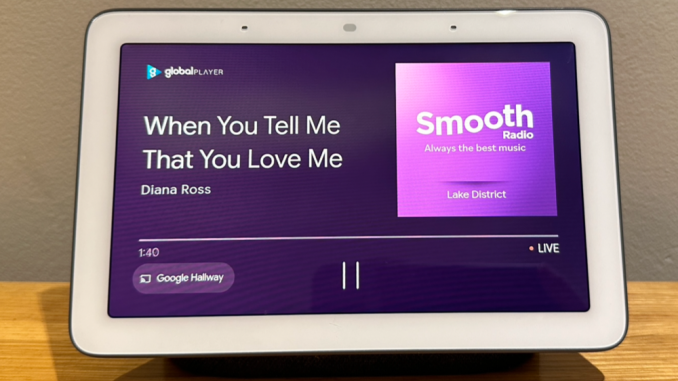
The Culture, Media and Sport Committee is backing measures to deregulate commercial radio and secure its future on voice-activated devices such as smart speakers.
The committee says the Government should include measures to protect radio when it introduces the Media Bill to address the risk to the industry of larger platforms controlling access to stations and driving listeners elsewhere.
The parliamentary inquiry was chaired by Dame Caroline Dinenage MP and was prepared as part of parliament’s scrutiny on the Draft Media Bill, which is expected to be announced as part of the government’s legislative programme in the King’s Speech on 7th November 2023.
It also supported steps to modernise commercial radio regulation by removing music restrictions and allowing all programmes to be made from outside a station’s coverage area.
There has been a rapid growth of radio listening on voice-activated platforms in recent years, driven by smart speaker devices. Live radio is the most widely accessed form of audio on smart speakers, accounting for 70% of listeners’ time.
This growth provides opportunities for radio but also presents serious risks if tech platforms abuse their market power. These risks could include pushing listeners to their own radio-like services, limiting free access to UK radio or inserting their own advertising around radio content. The Media Bill will address these issues with new obligations for the main voice assistant platforms, such as those operated by Amazon and Google.
However, techUK, the UK’s technology trade association, says it is disappointed with the proposals: “The measures in the Draft Media Bill threaten to unbalance this thriving ecology. As drafted, the radio provisions are disproportionate, unworkable and lack a robust evidence base; and were not included in the broadcasting white paper.”
Dame Caroline Dinenage MP, Chair of the CMS Committee, said: “The environment in which radio operates has changed beyond all recognition in recent years, with the move away from independent stations towards national networks and the rise of smart speakers just the latest developments to test the existing regulatory regime.
“Amid the rapid changes, it is vital that the Government includes the provisions in the Media Bill to protect radio’s availability on voice-activated devices. It is also important that in the move towards deregulation of radio, Ministers do not lose sight of the importance to listeners of local news and information. The new legislation must make the enforcement responsibilities of Ofcom clear.
“We look forward to seeing the measures in the Bill when the legislation is brought forward.”
CEO of Radiocentre, Matt Payton, said: “This report is a ringing endorsement of the proposals in the Draft Media Bill to help secure the future of radio. Its recommendations are a welcome contribution to the debate and demonstrate the strong case for action to support radio’s place on smart speakers. I’d like to thank the committee for listening to the evidence and for reflecting this in its report to government. We look forward to these important protections becoming law in the next parliamentary session.”
Antony Walker, deputy CEO of techUK, said: “We are disappointed with today’s announcement from the Culture, Media and Sport Committee supporting bringing voice assistants relationship with radio into scope of the draft Media Bill.
“Changes in technology, such as the introduction of smart speakers, have directly led to an increase in UK radio listenership, providing new ways radio can be enjoyed by UK audiences.The commercial radio industry is reaching record listenership levels and attracting record advertising revenues (Rajar June 2023); this is a mutually beneficial success story. Our members already support and route radio to their listeners free of charge, with some members, such as Amazon, already providing a free onboarding process via their Radio Skills Kit.
“The measures in the Draft Media Bill threaten to unbalance this thriving ecology.
“As drafted, the radio provisions are disproportionate, unworkable and lack a robust evidence base; and were not included in the broadcasting white paper.
“We welcome the Committee’s recognition that the technology sector was insufficiently consulted, and that the government failed to produce any kind of sufficient impact assessment. We are concerned, therefore, that no legislation can be deemed workable or open to expansion when the evidence base is so inadequate.
“We remain committed to collaborating closely with the government and the industry to achieve the Media Bill’s objectives in a transparent, evidence-based and proportionate manner, catering to the interests of broadcasters and the tech industry alike and are keen to work together to find a way forward that also protects innovation and consumers.
“We continue to see these provisions as a solution in search of a problem.”
This story first appeared on radiotoday.co.uk
